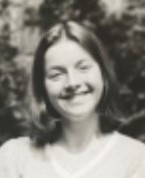Normalization was an education in hypocrisy

Download image
Hana Plicková, née Čermáková, was born on January 18, 1961 in Chomutov. During the invasion in August 1968, she and her brother were spending their holidays at their grandmother’s in Dolní Jiřetín. Grandma woke them up with great fear in the early hours of the morning and together they watched the passing tanks. After matriculation, she joined the Faculty of Education of Jan Evangelista Purkyně University and studied Russian and geography. At that time, she also took part in a concert performed by the band called Pražský výběr in Karlovy Vary. On the return journey by train, they issued an ID card for each passenger. When her classmate stood up for another girl who did not have an ID card, she received very rough treatment from the police. After her studies, she started as a teacher at an elementary school in Jirkov. When teaching, she was particularly bothered by how history was twisted and children were lied to. She experienced the Velvet Revolution with enthusiasm and the expectation of great changes. In 2022, she lived in Jirkov.






